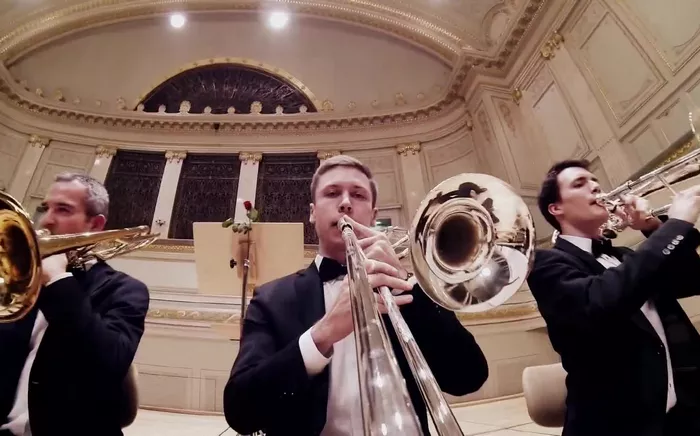Understanding and mastering all the notes on a trumpet is crucial for every trumpet player, whether they are a beginner or an experienced musician. Each note holds its own unique character, and knowing how to produce them accurately is essential for playing melodies, scales, and songs. In this comprehensive guide, we will delve into the world of trumpet notes, provide a step-by-step approach to playing all the notes on a trumpet, and offer valuable advice and tips to help you on your musical journey.
Understanding Trumpet Notes
Trumpet notes are the building blocks of melodies and harmonies. They are represented by specific pitches on the musical staff, indicating the frequency or pitch of the sound produced. Each note has a distinct name, such as C, D, E, F, G, A, B, and higher octaves of these notes. Understanding the relationship between these notes and their corresponding fingerings is essential for playing the trumpet fluently.
How to Play All the Notes on a Trumpet?
Mastering all the notes on a trumpet requires time, patience, and consistent practice. Here is a step-by-step approach to help you navigate the trumpet’s melodic spectrum:
Start with the Basic Notes: Begin by learning the fingerings and playing the basic notes of the trumpet. Start with the open notes, such as C, G, and F, which can be played without pressing any valves. Practice producing a clear and centered sound on these notes, focusing on proper embouchure and breath control.
Learn the Valve Combinations: Familiarize yourself with the fingerings for the remaining notes by learning the valve combinations. Each valve has a specific effect on the pitch, and pressing different combinations of valves alters the length of the trumpet’s tubing, resulting in different notes. Practice playing scales and simple melodies using different valve combinations to develop finger dexterity and coordination.
Master the Chromatic Scale: The chromatic scale encompasses all the twelve notes within an octave. Practice playing the chromatic scale ascending and descending, paying attention to the accuracy and evenness of each note. This exercise will help you become comfortable with the fingerings for all the notes on the trumpet and improve your overall intonation and control.
Develop Lip Flexibility: Playing all the notes on a trumpet requires flexibility and control of the lips. Incorporate lip slurs and flexibility exercises into your practice routine to improve your range and ability to navigate between notes smoothly. These exercises involve playing a series of notes without using the valves, relying solely on lip tension and embouchure adjustments.
Focus on Accuracy and Tone: As you progress, focus on playing each note accurately with a clear and resonant tone. Pay attention to the consistency of your sound across different registers and work on minimizing any pitch inconsistencies or intonation issues. Regular practice and ear training will help you develop a keen sense of pitch and improve your overall musicality.
Expand Your Repertoire: Apply your newfound note-playing skills by learning and practicing songs, melodies, and trumpet repertoire. Playing a diverse range of musical pieces will challenge you to apply different fingerings, techniques, and musical interpretations, allowing you to further refine your trumpet playing skills.
Advice and Tips for Mastering Trumpet Notes
Alongside the step-by-step approach, here are some valuable advice and tips to help you master all the notes on a trumpet:
Consistent Practice: Dedicate regular and consistent practice sessions to trumpet playing. Devote specific time to work on note accuracy, finger dexterity, and overall technique. Consistency is key to progress and mastery.
Warm-up and Embouchure Exercises: Start each practice session with a warm-up routine that includes mouthpiece buzzing, long tones, and lip slurs. These exercises will help develop your embouchure strength and flexibility, setting the foundation for accurate note production.
Use a Tuner: Incorporate the use of a tuner into your practice routine. Tuners will help you develop a better sense of pitch and intonation, enabling you to play each note in tune and improving your overall sound quality.
Seek Professional Guidance: Consider taking lessons from a qualified trumpet teacher. A professional instructor can guide you through proper technique, offer personalized feedback, and provide exercises and repertoire that target specific challenges you may encounter while playing trumpet notes.
Listen and Emulate: Listen to recordings of accomplished trumpet players to develop an ear for tone, phrasing, and musical expression. Emulate their sound and style while maintaining your own unique voice as a musician.
Be Patient and Persistent: Learning to play all the notes on a trumpet takes time and patience. Be persistent in your practice, and don’t get discouraged by initial challenges. With consistent effort and a positive mindset, you will gradually expand your trumpet-playing abilities.
In Conclusion
Mastering allthe notes on a trumpet is a rewarding journey that requires dedication, practice, and a solid understanding of trumpet notes and fingerings. By following the step-by-step approach outlined in this guide, along with the valuable advice and tips provided, you can develop the skills necessary to play all the notes on a trumpet with accuracy, control, and musicality. Remember to approach each practice session with focus and intention, and don’t forget to enjoy the process. With time and perseverance, you will unlock the full melodic spectrum of the trumpet, opening up a world of musical possibilities and allowing your trumpet playing to soar to new heights.


